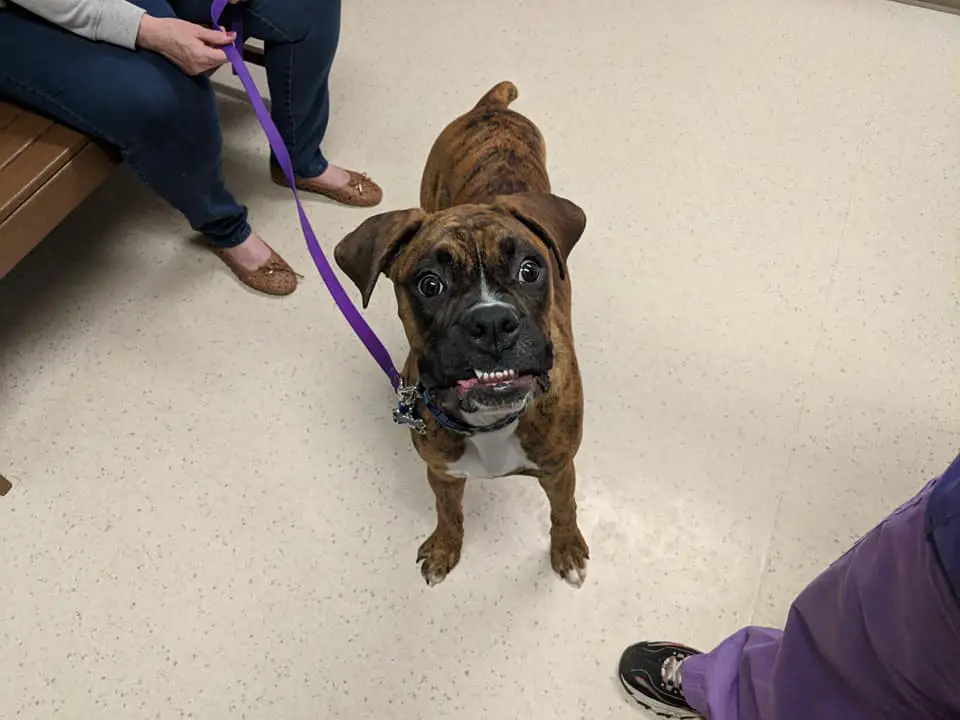Is Acepromazine Safe For Boxers?
It’s not at all uncommon for the owner of a purebred dog to come into my veterinary practice and inform me that their specific breed is “sensitive” to a certain drug or vaccine. Occasionally this can be true, but the vast majority of the time it’s simply not. One of these situation involves the drug Acepromazine and Boxers.
Can Acepromazine be used safely in Boxers as a sedative or as part of an anesthetic protocol? Yes. It can be useful in many situations and if your veterinarian is comfortable with the drug then they can use in safely even in your Boxer.

Table of Contents
Is There Any Evidence To Support That Acepromazine Is Bad For Boxers?
When I was graduating from veterinary school in 2000, the idea that you shouldn’t use Acepromazine in Boxers for any reason was commonly talked about and known widely. In the past decade, that information has fallen out of favor with veterinary educators and many newer graduates have never heard of this “issue.”
Why is this? Because there isn’t any actual evidence that Boxers are any more susceptible to the effects of Acepromazine than any other breed.
Every website devoted to Boxers will claim that the above assertion is wrong, but there are not any studies that prove their hypothesis. There are risks associated with Acepromazine and these are true for every drug that causes sedation.
Boxers can also be more susceptible to anesthesia or sedatives due to Boxer Cardiomyopathy.
What Is Acepromazine Used For In Dogs?
I like to use Acepromazine in the following situations:
- Anesthesia – while I use it far more commonly in cats, I have at times added Acepromazine to my pre-anesthetic drug regimen. I prefer other sedatives for anesthesia (due to the shorter-acting nature or reversibility of drugs such as Domitor) usually. However, for those really crazy, active dogs that need a little extra something to get them ready for surgery, Acepromazine is an excellent choice.
- Sedation During Stressful Events – this includes things like fireworks and thunderstorms; while I recommend many other options when it comes to mitigating the fear dogs face during these times, I will prescribe Acepromazine when the dog doesn’t respond to any of these other treatments.
- Post-Anesthesia Sedation – occasionally a dog will wake up from anesthesia in a frantic state. This is likely due to the psychogenic effects of certain drugs, especially as the drug is clearing the body and the effect changes from full sedation to a more wakeful state. I would equate this to a person that sometimes wakes up from their own anesthesia in a violent or highly excitatory state.
Why Could Acepromazine Be Bad For Boxers Or Any Dog?
Acepromazine, like many other sedating drugs, can cause hypotension (low blood pressure). It’s dose-dependent meaning that higher doses will cause more hypotension. Hypotension is very common during anesthesia and is monitored by the use of a blood pressure monitor.
Low blood pressure can be mitigated by giving IV fluids, other medications, and even lightening the amount of gas anesthesia used. Monitoring the blood pressure frequently throughout anesthesia (we measure pressures every 5 minutes)
The dog’s own body will attempt to manage low blood pressure by increasing the heart rate (among other non-heart-related measures that I am not getting into here). If the dog has some underlying heart disease this can overstress the heart.
Boxer Cardiomyopathy causes frequent heart arrhythmias and any sudden increase in heart rate could cause a fatal arrhythmia. A Boxer with this disease under anesthesia should be monitored extremely closely with an EKG and administered any appropriate medications to counter and prevent these abnormal rhythms.
For that reason, if you have an older Boxer with this disease that requires surgery, utilizing the services of a veterinary specialty center may be the best route for the safest possible anesthesia protocols and most elaborate monitoring techniques.
In Conclusion
- Acepromazine isn’t any more dangerous in Boxers than it is in other similar-health animals
- Boxer Cardiomyopathy, if present, can greatly increase the danger in anesthesia when using Acepromazine (and many other anesthetic drugs)
- There’s no evidence other than anecdotal stores that Boxers can’t take Acepromazine
